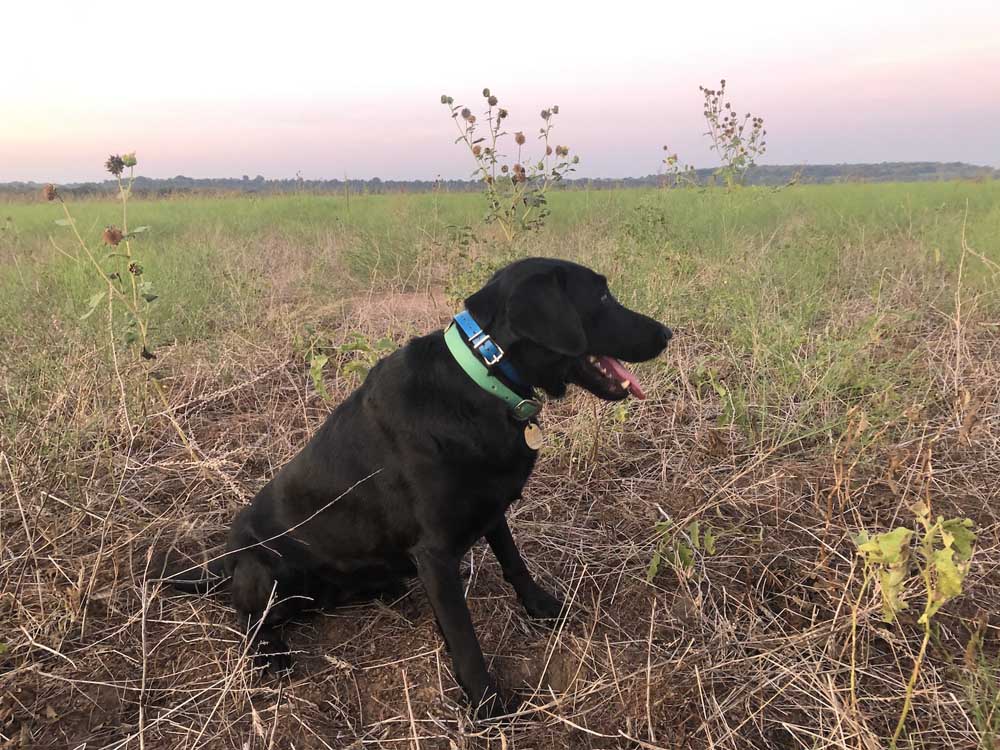Hunter’s Best Friend: How To Handle Aging Hunting Dogs Creates Dilemma
Published 11:00 am Thursday, November 25, 2021

- Unfortunately, hunting dogs do not age at the same rate as hunters. That means eventually decisions have to be made about when and if to retire a dog.
I have said it before, there is a special bond between a hunter and their dog. It comes about from all the shared experiences in the field, good and bad, where both are doing something they truly enjoy.
It is the whole package and at some point in their hunting life a hunter will come to the realization that a really good hunt is determined by the dog work more than the shots or the limit. Both get longer in the tooth but the hunter does not even have to get a gun out of its case or the dog ever leave the hunter’s side for the trip to have been a success.
I have been lucky that my last two dogs have not only been good hunters, but also good partners. Dixie, a German shorthair, was an amazing dog. Although a pointing breed, she was a champ at everything. Her nose was exceptional making her good for quail and pheasant, but she also retrieved dove and while the water was still warm would bring back ducks.
In between hunts, she served as my co-pilot in the truck or would lay next to my chair, never really needing attention. She seemed just as content as I was to know we were a team.
My current dog, Sadie, is a black Lab, and as a friend once said the only reason you have a Lab is to cuss at them. Don’t get me wrong, she has a nose on her and when she goes on a retrieve, I am confident she is coming back with something sooner or later. She also has heart and will hunt from can ‘til can’t.
But unlike Dixie, Sadie has been a little more high maintenance. Labs are pleasers and they do not turn off the personality just because the hunt is over. I would not change her.
I was still hunting Dixie when I got Sadie almost 10 years ago. She came from my son’s female and was the runt of the litter. To get a second dog, I had to convince my wife it was going to be her dog. I even put her name on the dog collar to make it official. But Liz knew better and soon watched as the dog was loaded in the truck for hunt after hunt. She started referring to her as “traitor dog.”
And therein rests the problem. Along with that special bond comes the added responsibility of taking care of a dog that is more than a pet. In my case, she is also that hunting companion/partner and a reminder of Liz who passed in 2015.
I have watched Sadie slowing down in recent years, especially after overheating while dove hunting in 2019.
Since then, I have pampered her a little when the weather was warm. Much of her work the last two years has been late season dove and as a retriever at pheasant tower hunts at Hidden Lakes Hunting Resort in Yantis and retrieving quail.
Sadie recognizes when I am getting hunting gear out of the closet and amps up like an elementary school kid on a sugar fix.
That was the case in early October. I was getting organized for Hidden Lakes’ first tower hunt of the year and as soon as she saw me putting on brush pants and grabbing an orange vest, she was waiting for the door to open to jump in the truck.
It was a warm, humid afternoon and the hunters were on target. Sadie had two dozen retrieves at the midway break.
And then she went down. After the previous overheating incident, I knew exactly what was going on and called for help. Hidden Lakes’ guides Cade Newsome and Daniel Cerretani came rushing up, grabbed the dog and headed for the lodge. Newsome, who also works at a vet clinic, got her on a cool surface and covered her feet pads with rags covered in alcohol to cool her down quickly.
These type incidents can happen, and under different circumstances. I later talked to another dog handler who experienced the same thing on a 37-degree day.
Like the first time I am seeing changes in Sadie’s personality. She has slowed in both speed and spirit. To me, there are times she seems confused.
The dilemma now becomes what do I do going forward. Do I continue to let her enjoy the hunt or back her down even more and hope to extend her life?
I talked to a friend and he said his thought is if a bird dog dies hunting, she dies happy, and I cannot argue with that. In fact, I hunted Dixie just days before having to put her down because of cancer.
I took Sadie again in mid-November. It was a warmer day and I was cautious about how much I let her do. It seemed like she was OK with that.
Going forward I will continue to hunt her, but only in cooler weather. That way I reach the compromise where she is happy hunting and I am happy to still have her around.






